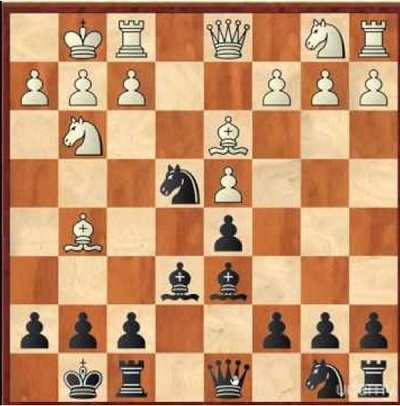Coach Liah’s Advice for Chess Beginners
“Do you ever feel like you’re making the same mistake over and over again, but you don’t know how to fix it?”
BY LIAH IGEL - THE ANDERSON SCHOOL - COACH & HER NEWS CONTRIBUTOR
Do you ever feel like you’re making the same mistake over and over again, but you don’t know how to fix it?
In chess, this can be a very frustrating process to go through––especially if you’re a beginner. In this article, we’re going to go over ways you can improve your game.
One mistake that I often see in beginner games is hanging pieces. Hanging pieces are pieces that are on unprotected squares where they could easily be captured. Learning how to avoid hanging your pieces is an essential part of chess, but understanding how to take advantage of your opponents hanging pieces is also very important. If you learn this concept well, you’ll see a lot of fast improvements in your games. Below is an example of a hanging piece (the position is black to move):
In this position above, there’s one piece that’s unprotected. Can you find the piece?
…
…
…
…
…
It’s the bishop on b4! There are no white pieces defending it, and black can easily take it with their queen.
Though slightly less common than hanging pieces, not castling until it’s too late into the game is a mistake that beginners often make. This is very important to be aware of, as a delay in castling can drastically change the course of a game. One’s position can go from neutral (or even winning) to losing in a matter of moves –– all because their king is unguarded and exposed in the center of the board. If you’re relatively new to the game, I’d suggest castling by around move 15, just to be safe. This may change as you become a more experienced player.
There are many strategies you can use in order to avoid making these mistakes. Practicing as much as you can (both independently and against others) is very helpful. Even just one game a day will make a huge difference. I recommend using chess.com, chesskid.com, or lichess. Another extremely helpful thing you can do to target specific areas you want to improve on is to set your puzzles to a specific topic. There are settings in all the aforementioned websites where you can change the puzzle topic to focus on specifics such as mate-in-ones, forks, and pins. It can also be important to motivate yourself! Set goals so that you can reach them. You can even add rewards for yourself to make it more fun. As long as you put time into learning, you’ll get better for sure!
If you ever want specific advice, feel free to ask me directly! I coach most Her League events, and I’d be glad to offer any advice or guidance. You can also reach me at liah.igel@gmail.com if emailing me is easier.
I also encourage you to check out these links from chess.com to learn more about hanging pieces and the importance of castling:
